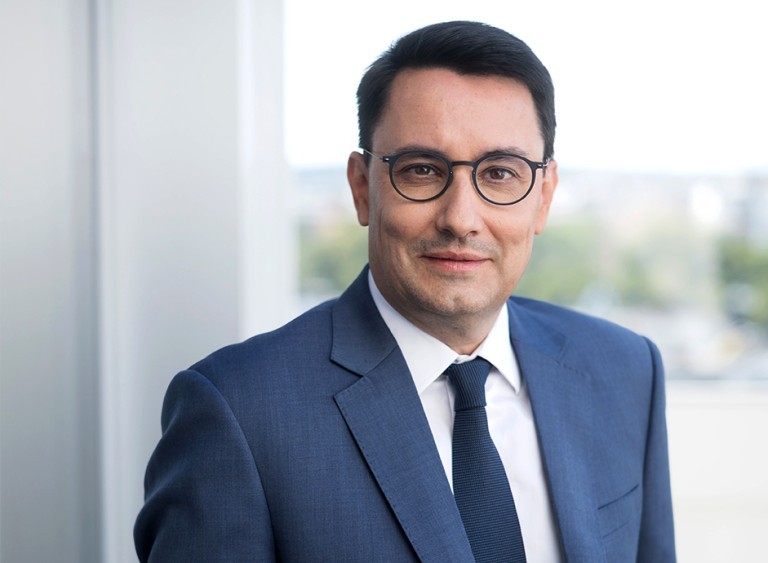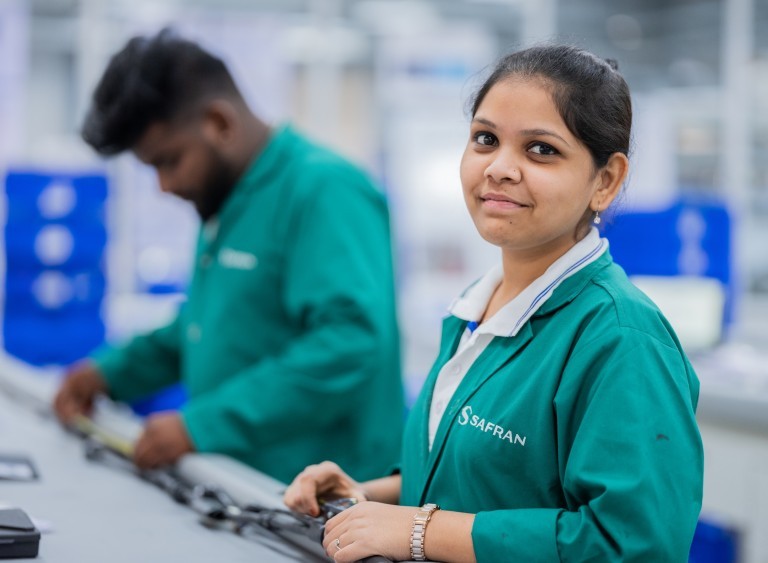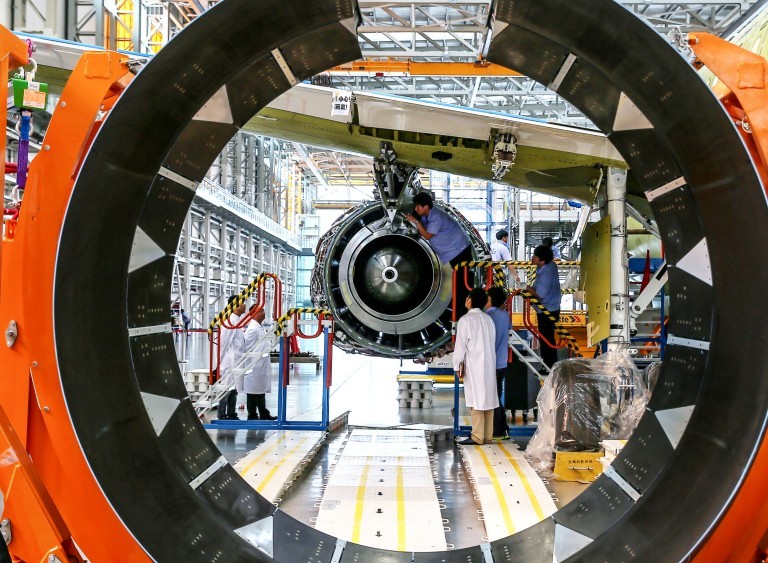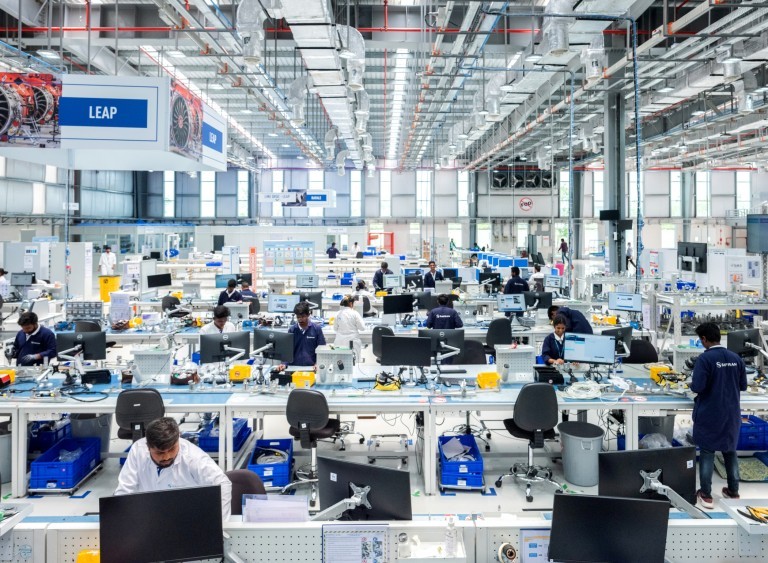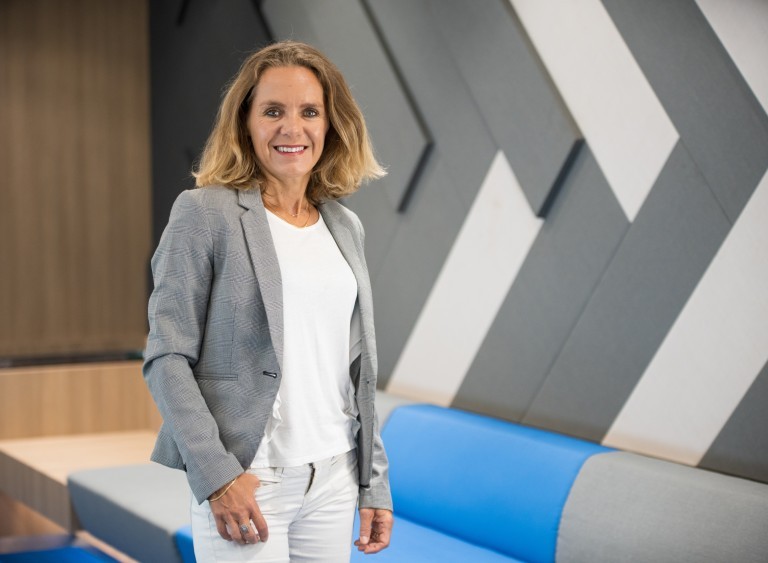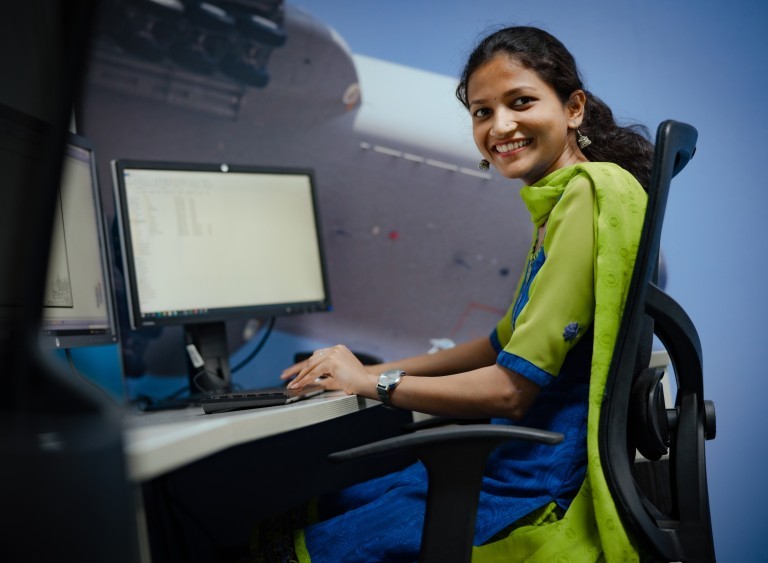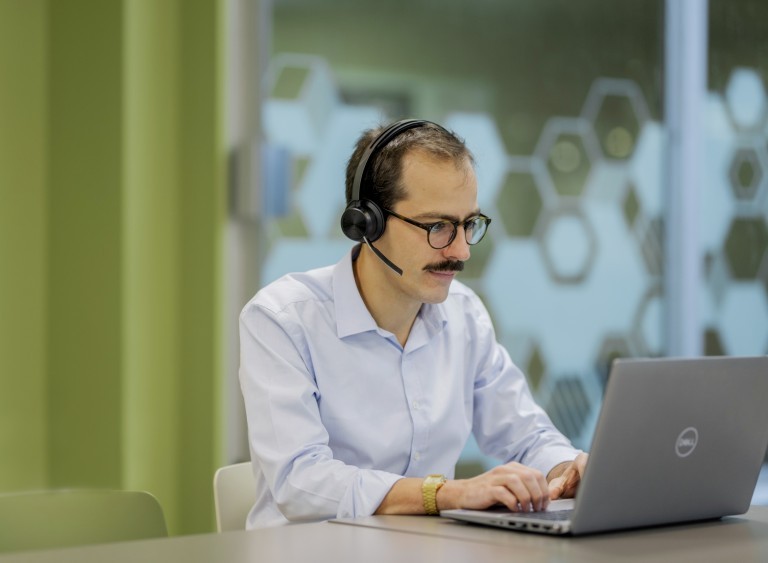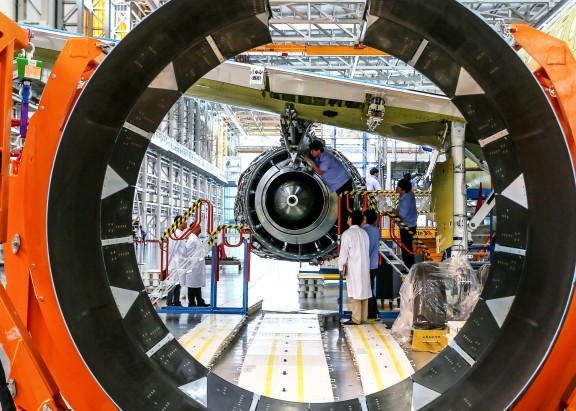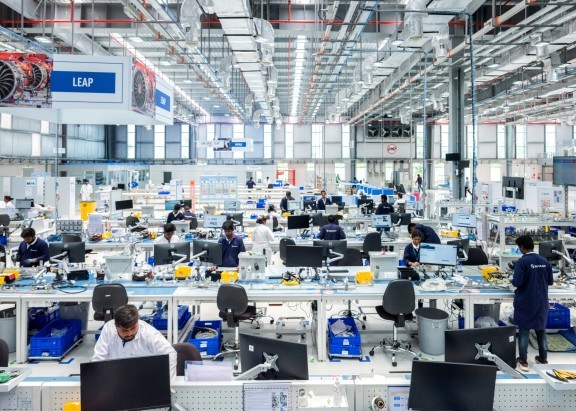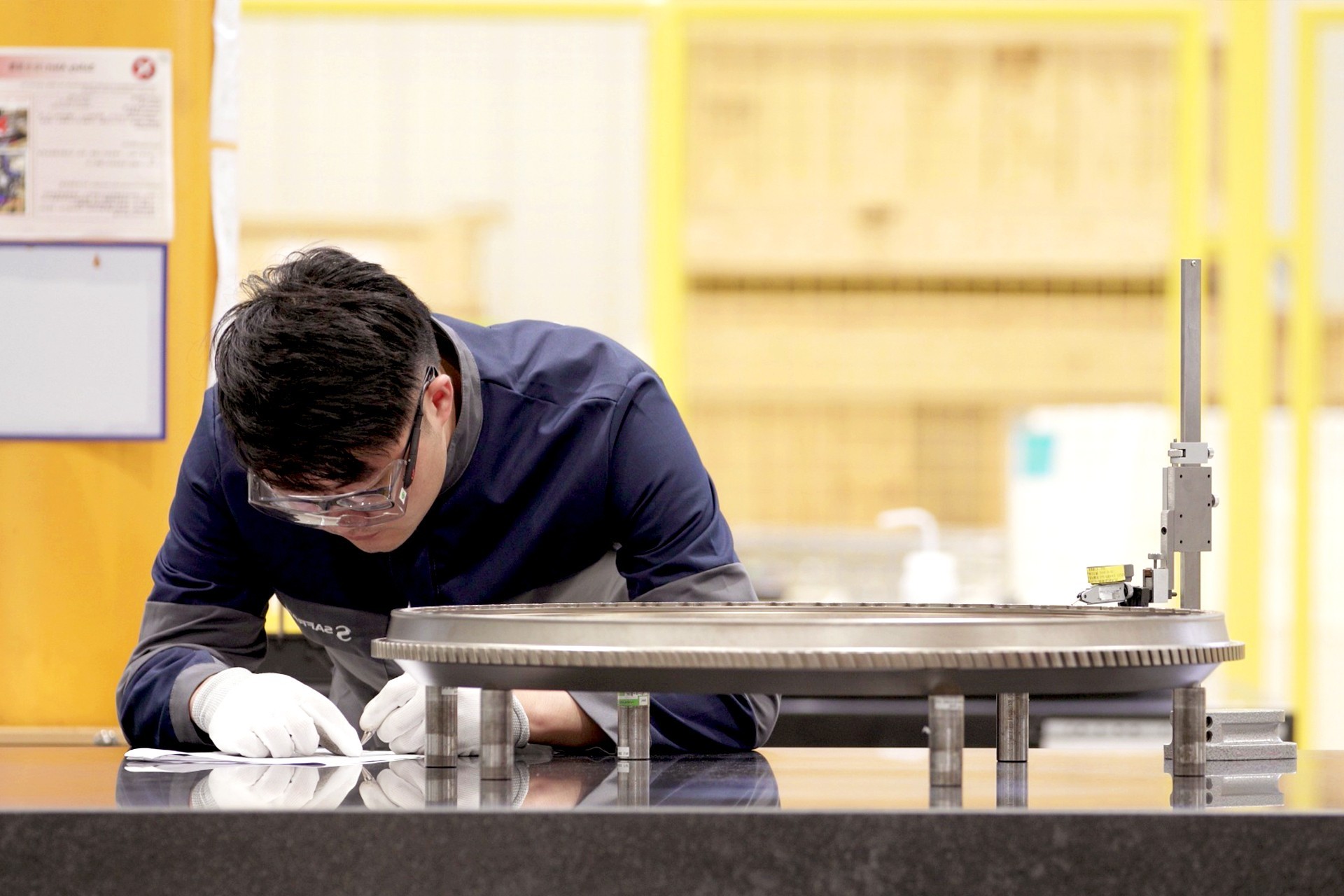
Teams readying for LEAP ramp-up in India and China
Safran Aircraft Engines has expanded its footprint in China and India for the LEAP production ramp-up. Today, more than 800 employees in Asia are pulling out all the stops to rise to the challenge.
- Snapshots
- Introduction
- At a glance
Safran Aircraft Engines’ Production & Supply Chain department has operated in Asia since 2005, when it opened the SHAE facility in Bangalore, India, and another facility in Suzhou, China in 2005, followed by Guiyang, China, in 2006. The company further expanded its Asian footprint in July 2022 with the official opening of the Hyderabad facility, designed to meet the challenges of ramping up LEAP production. “The Bangalore and Guiyang facilities have also been enlarged to boost production capacity,” notes Sabine Bermond, Head of Strategy for Production & Supply Chain. “These new facilities call on Safran best practices and state-of-the-art equipment. Our increased production capacity comes with several key challenges, namely the need to hire new people and upskill teams, maintain high HSE standards and manage risks.”
The Production & Supply Chain department is also backed by a network of about 20 suppliers well established in China, India, Malaysia, South Korea, Japan, Taiwan and Singapore. “They are key partners who we’re helping to get back to pre-Covid production rates,” notes Sabine Bermond. “We’ll need everybody’s efforts and commitment – both our teams and suppliers – to ensure the success of this second ramp-up.”
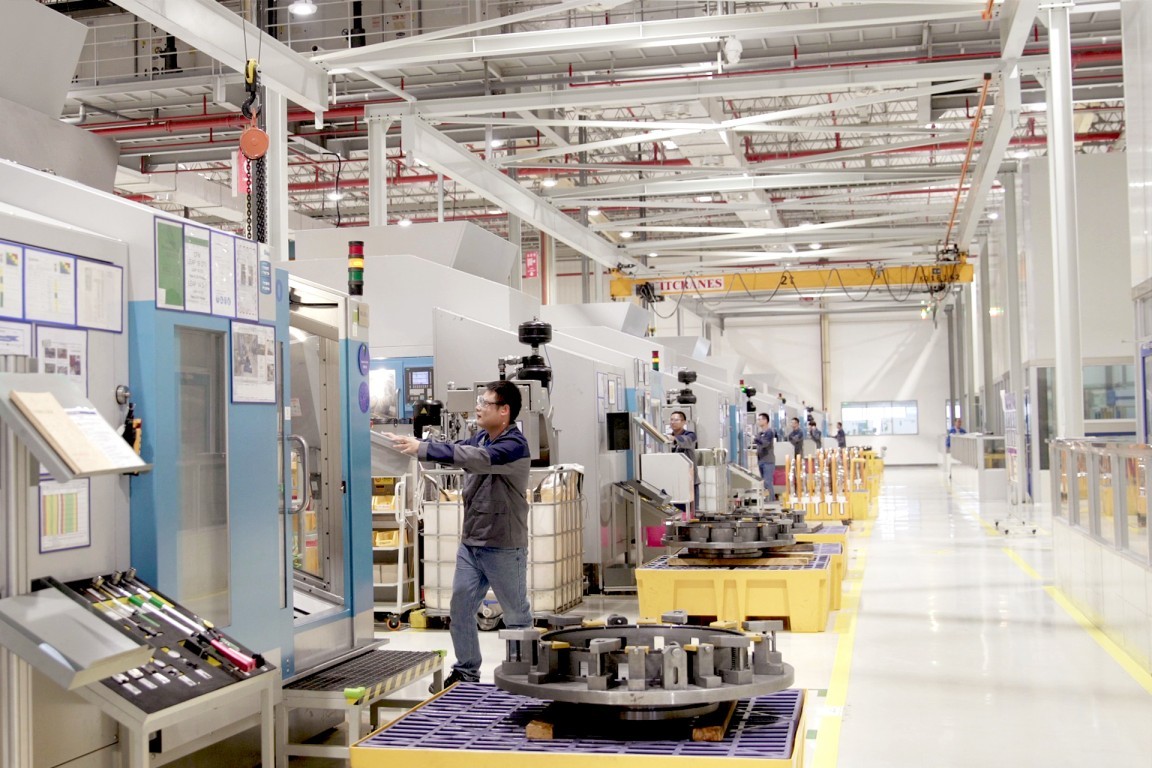
Bertrand Brax

“We anticipated the lead-times required to scale up production by setting up a mirror workshop to start production activities concurrently with the construction of the Hyderabad facility. However, the pandemic hugely disrupted schedules. We therefore turned to our teams in Corbeil (France) and Querétaro (Mexico) to drastically increase our development capacity. We’ve now moved into phase two of the project with the transfer of technologies to Hyderabad and transfer of skills through training and support for Indian personnel.”
Limin Wang

“After the lockdown in February 2022, we deployed a business continuity plan to meet our customer delivery targets. Faced with Covid-related supply chain issues, we decided to extend this plan and find alternative routes to maintain flows of LEAP modules between France and the United States. Over the last four months, we’ve set up task forces to get deliveries back on track. At the same time, we’ve hired 150 people who we’re now training. We’re also focused on making our processes more robust.”
Santhosh Kumar G
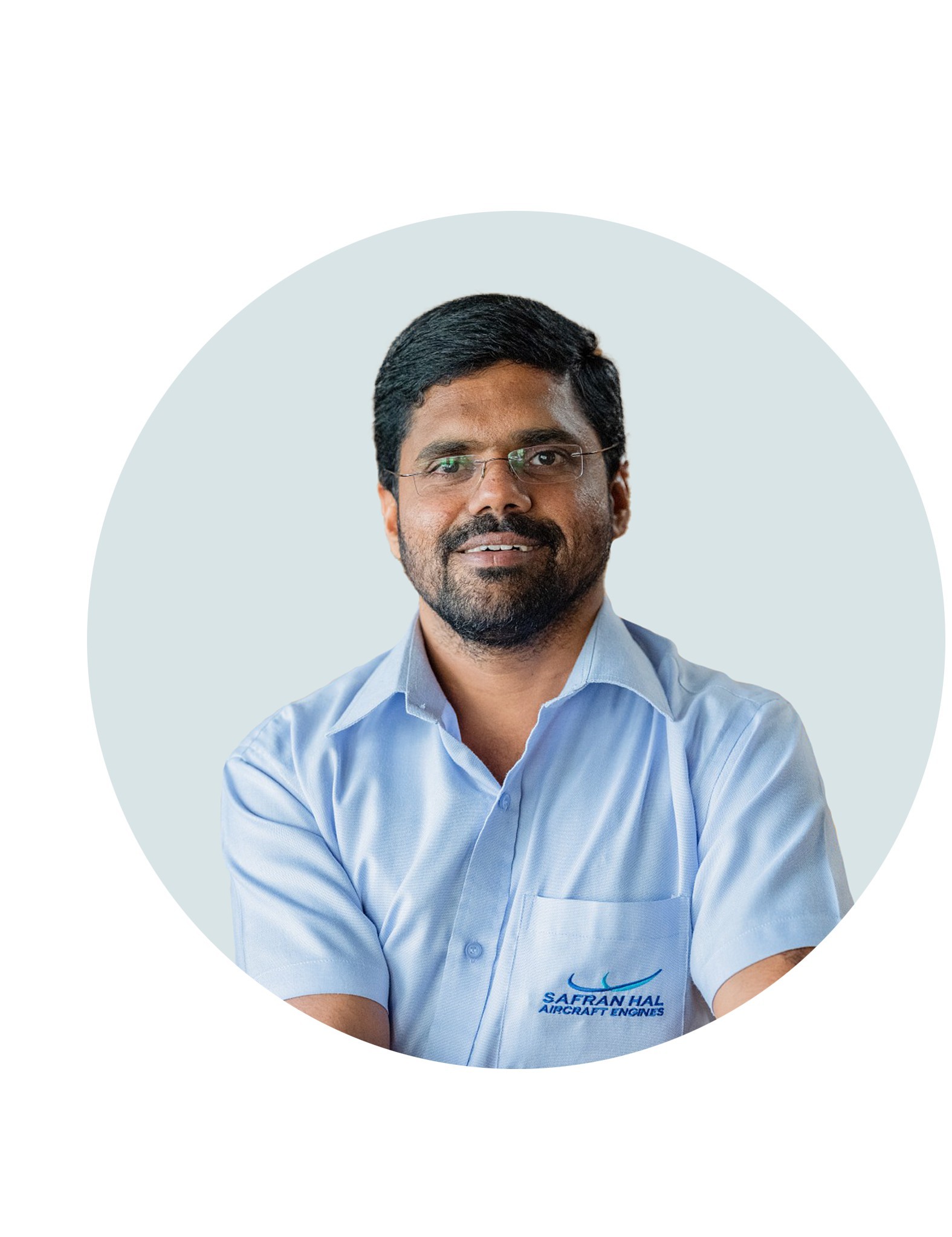
“We’ve extended our range to include new and more complex products, adding to our core business of LEAP piping. To accommodate the LEAP ramp-up, we plan to increase the workforce from 75 to 300 people over the next five years. With this increased capacity, we’re going to develop sheet-metal parts, which will call for another 150 new employees between now and 2027. At the same time, we’re encouraging staff already with us to upskill by training on new workstations.”
Kevin Yang
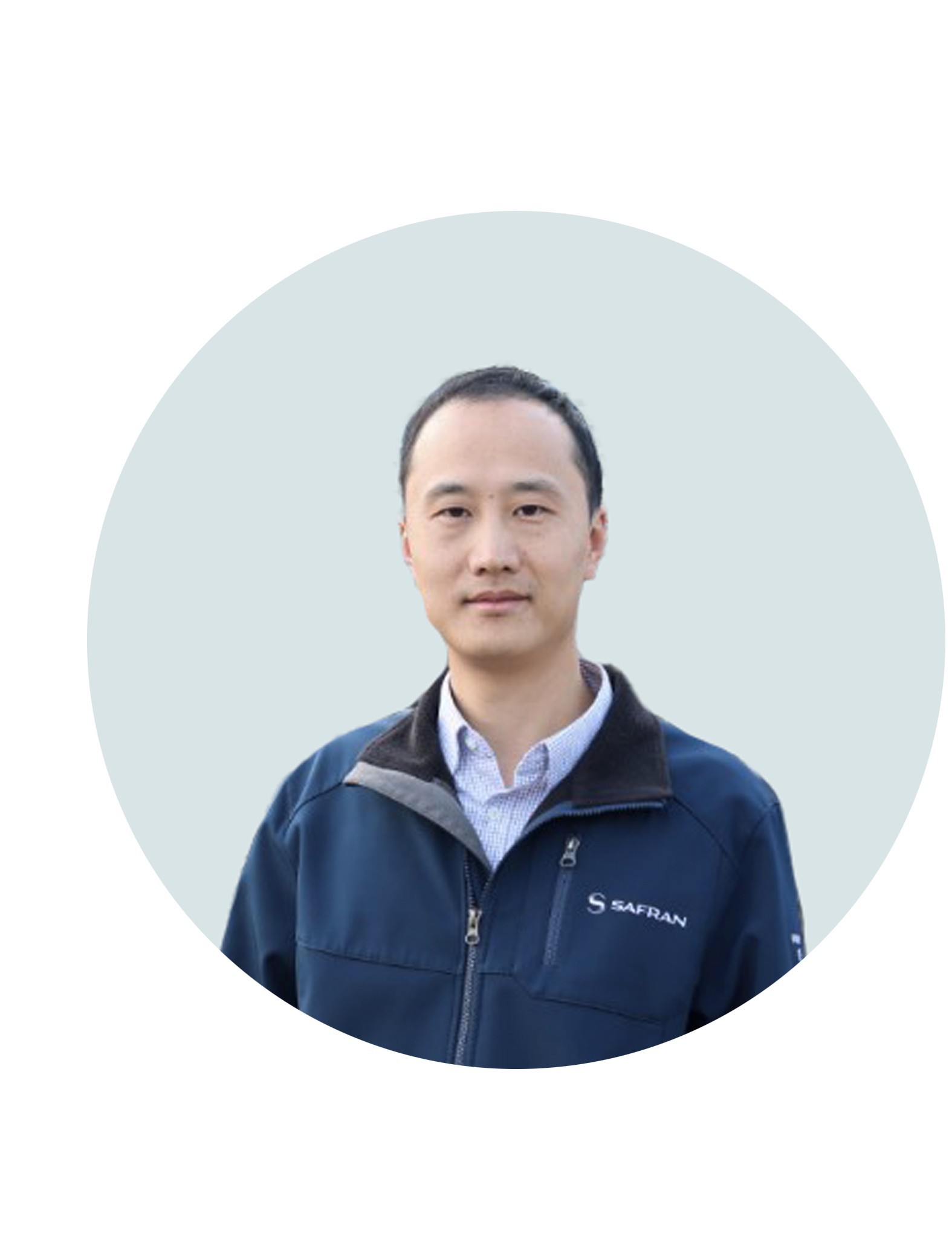
“The Covid crisis has led to supply chain issues and travel restrictions, and it also put on hold the relocation of our facility, intended to increase production capacity. But the crisis also gives us an opportunity to adapt and be more agile to adjust production rates in line with health restrictions. We’ve overcome some obstacles and accomplished a great deal thanks to our teams’ commitment, synergies between facilities and innovation.”
Safran Aircraft Engines production sites in Asia
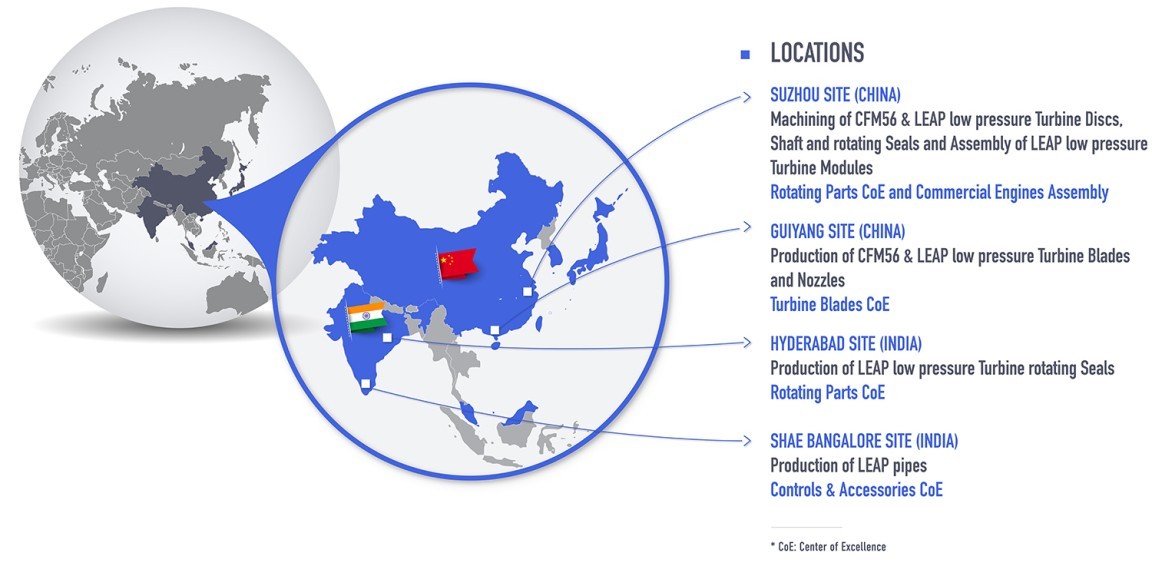
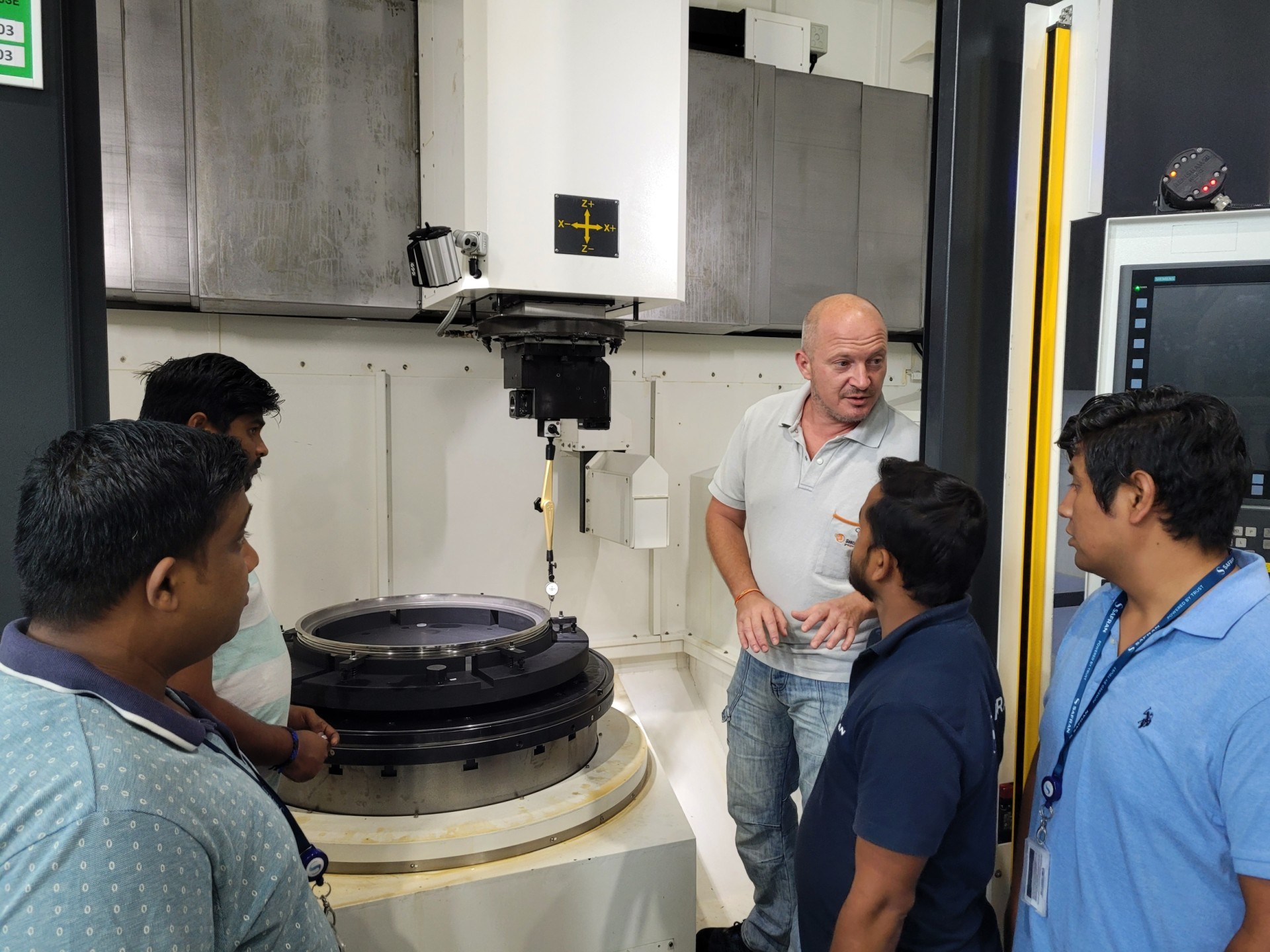
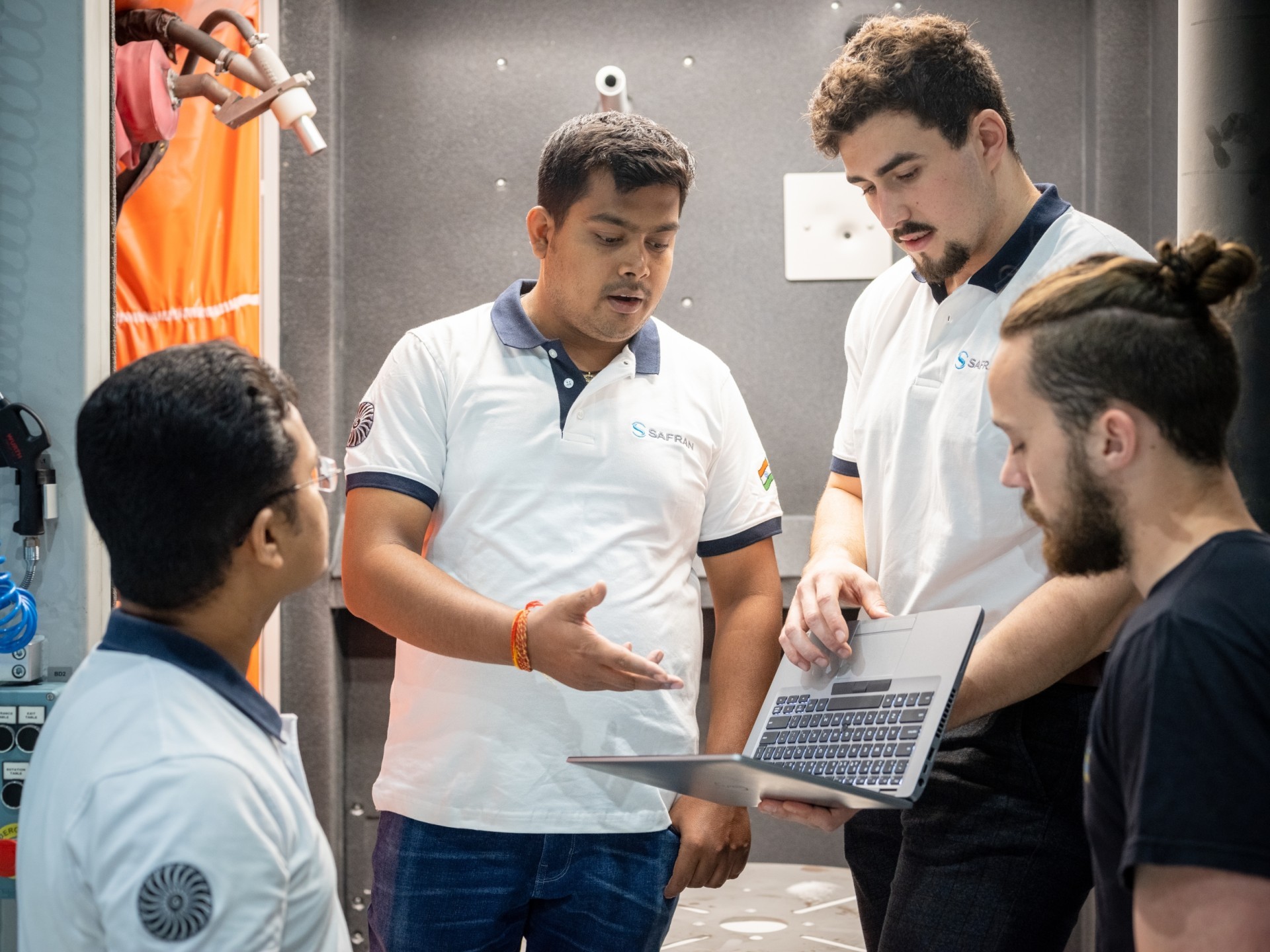
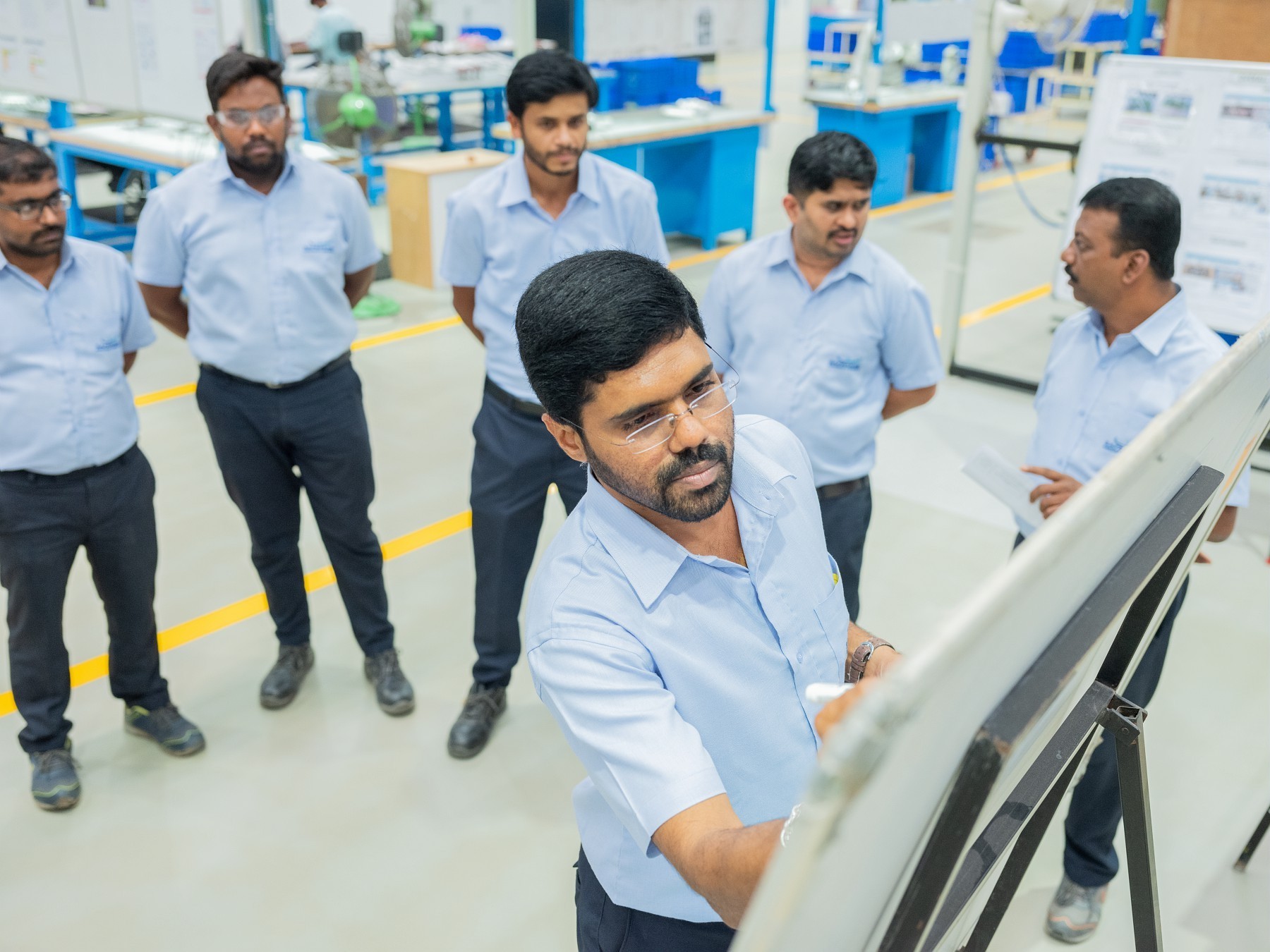
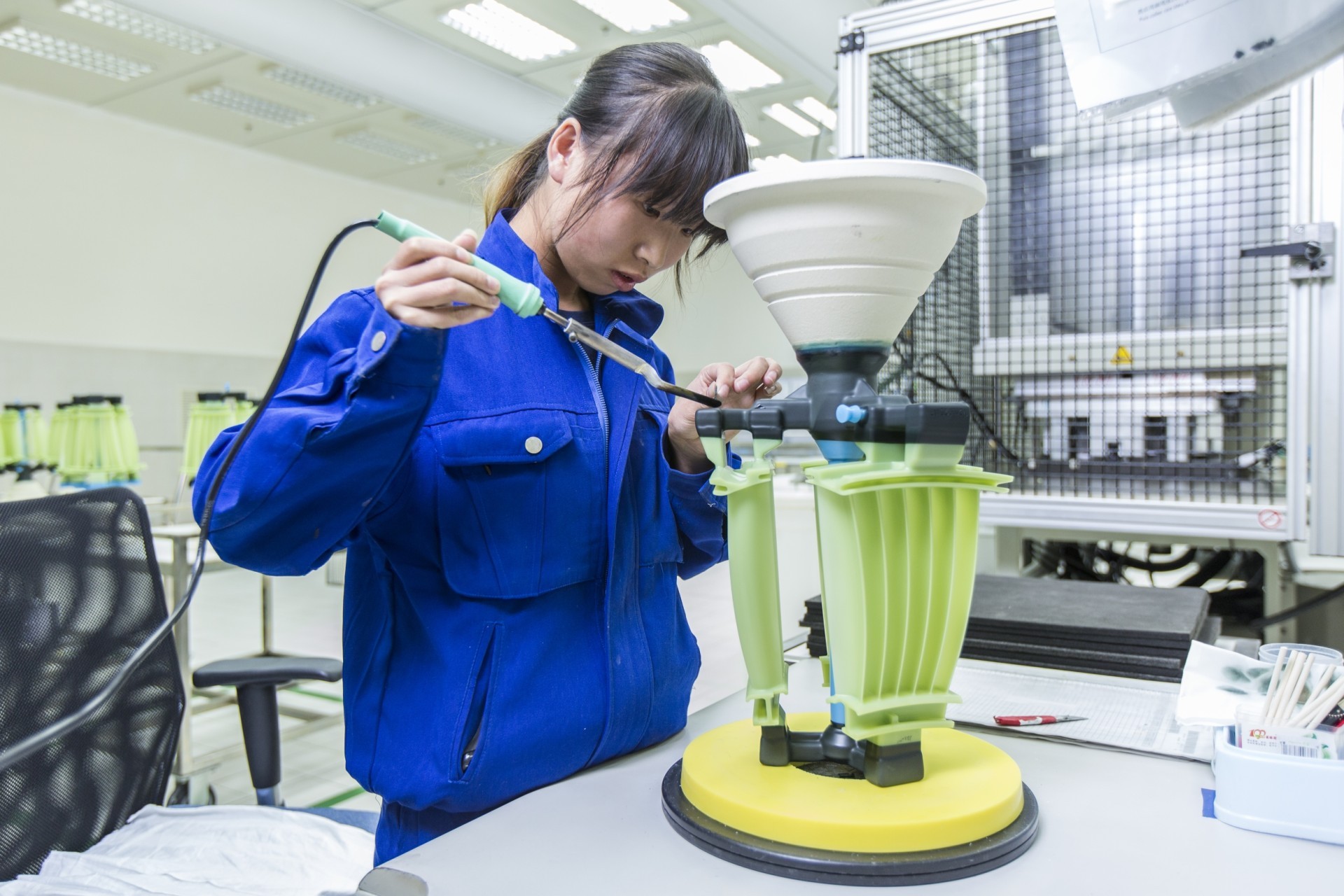
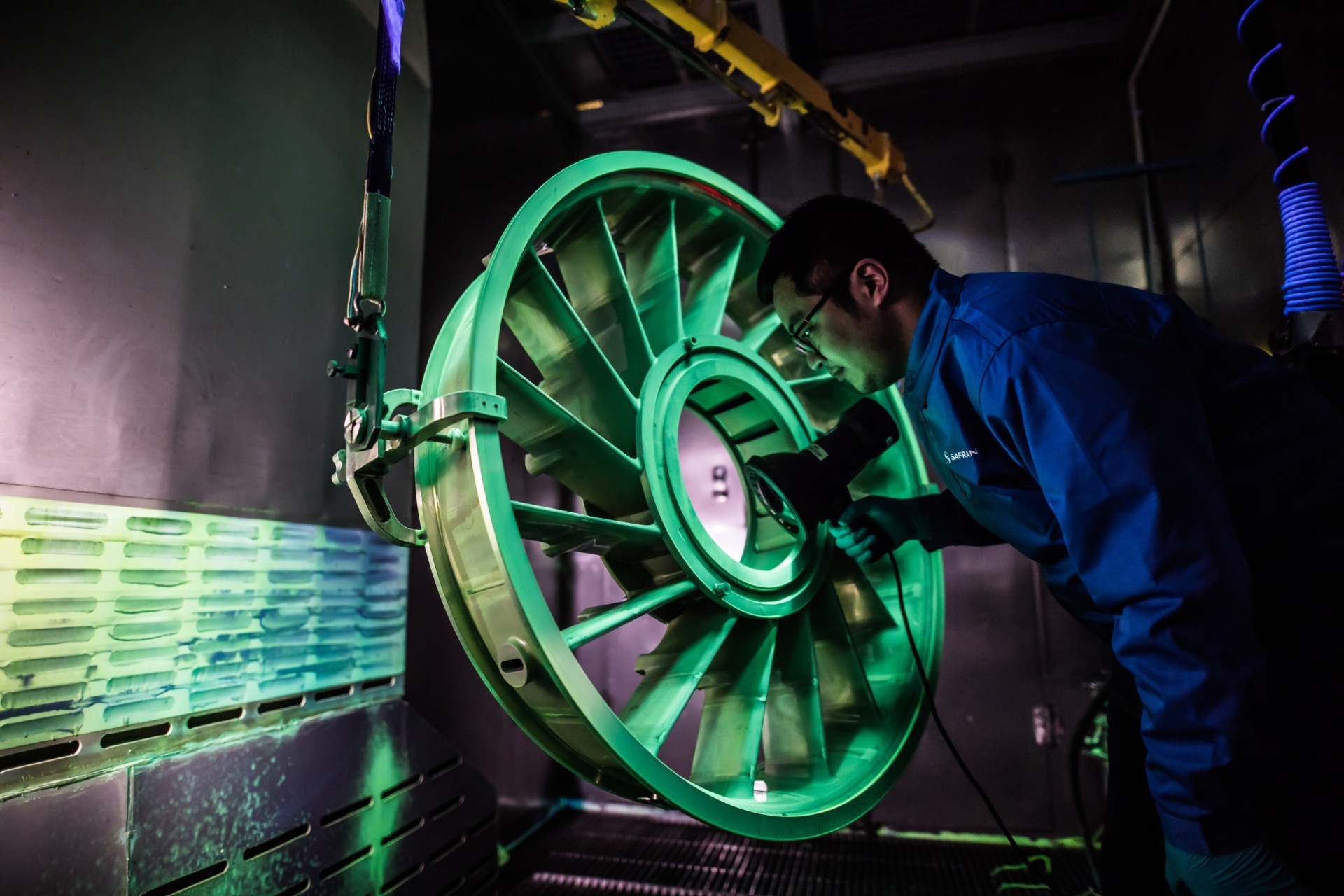
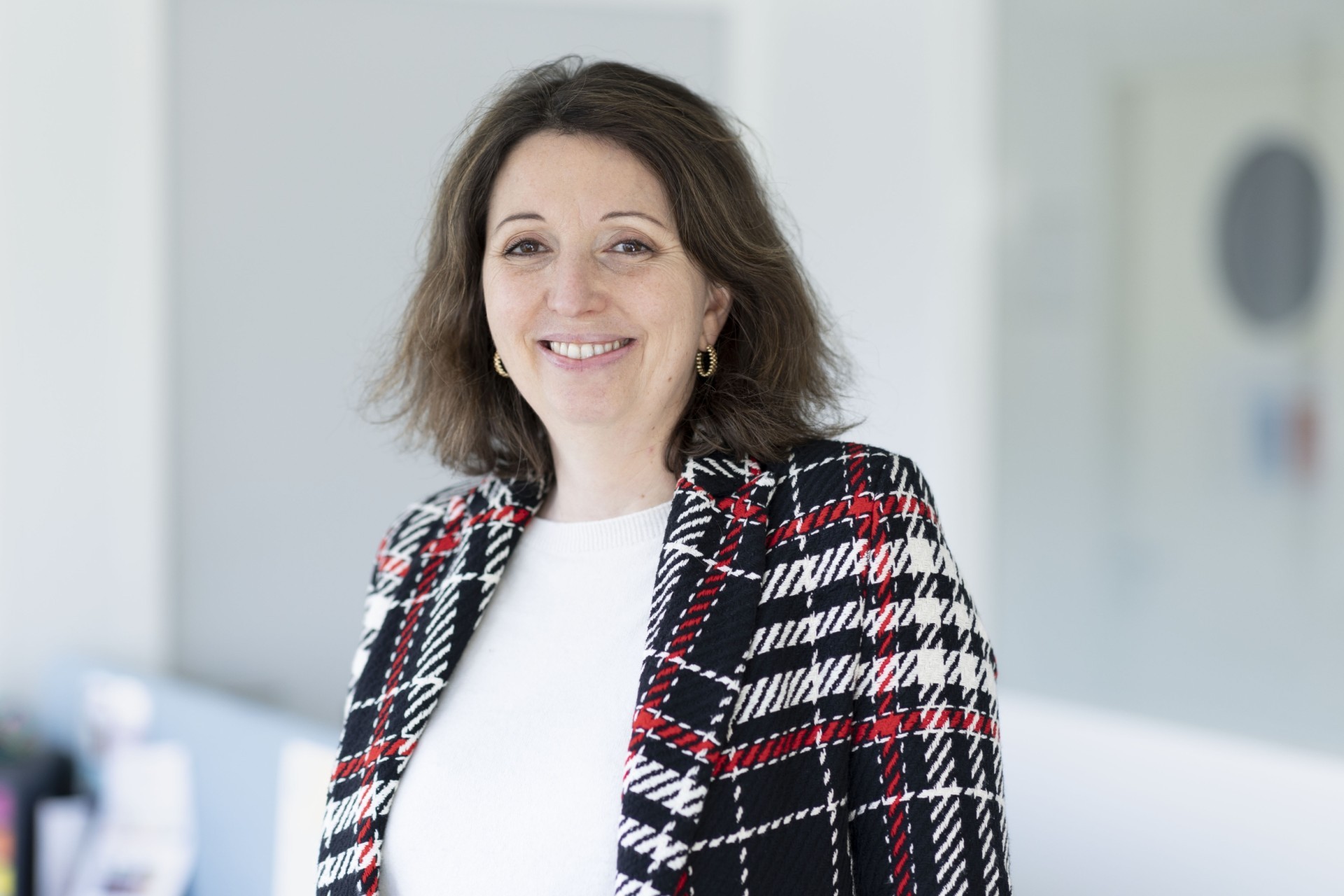
Training on a 3D measuring machine in Hyderabad

